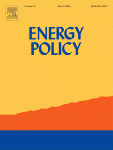This paper presents three individual cases of a wind turbine producer, a wind farm and a wind blade producer to illustrate how foreign collaboration and technology, choice of deployment strategy, and government policy have influenced the sector to continually improve its technology. The findings indicate that foreign technology and collaboration have had a significant role in helping wind energy technology to develop in China, and were also key elements in stimulating indigenous innovation when high prices held the domestic wind market back from massive expansion. While public policy has played a key role in many aspects of the development of the innovation path, the long-term, enduring goal of developing the required technology was the essential driver. The development of the wind sector occurred alongside the economic development and social improvement of the nation. Thus, while it may be too soon to predict the future path of innovation for Chinese wind energy technology, an emphasis on research and development and increasing international competition is a trend that is likely to continue.
The Korean government adopted “green growth” in 2008 as an environmentally friendly growth strategy. The energy efficiency of Korea, however, is still relatively low due to the large portion of energy intensive industry (EII) in its manufacturing sector. To improve energy efficiency in Korea, from an EII perspective a new approach has to be taken because restructuring entire industries would take too much time and be too costly. This study aims to emphasize the importance of innovation and analyze the effects of R&D on product and process innovations in EII in Korea. The Probit model is adopted to estimate the effects of eight determinants in the Korea Innovation Survey 2008 data. The results of this study demonstrate that one of the most important determinants, the R&D personnel ratio, has a strong positive effect on both product and process innovation, while another determinant, R&D intensity, only has a strong and positive effect on process innovation in EII. Because of the resulting innovation, energy policies should be enacted to enhance energy efficiency.
This article looks at how China has moved forward in embracing green technology development, the government’s role in that growth and whether its support is truly harmful on a global scale. It highlights key laws in the United States and the WTO involving trade - specifically subsidies, countervailing duties and anti-dumping regulations. An examination of recent trade cases involving the United States and China is followed by an analysis of America’s recent trade-oriented actions and legislation. Lastly, this article considers the legal implications of recent trade developments between these countries as well as policy implications, including the effect on the green and renewables industry.

This paper addresses the challenge of Germany׳s energy transition (Energiewende) as the centrepiece of the country׳s green industrial policy. In addition to contributing to global climate change objectives, the Energiewende is intended to create a leading position for German industry in renewable energy technologies, boost innovative capabilities and create employment opportunities in future growth markets at the least possible cost. The success in reaching these aims, and indeed the future of the entire concept, is hotly debated.

